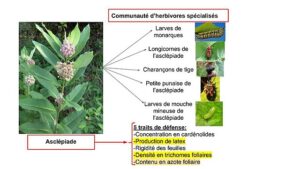Sybiobeta ran an interesting article on plant vaccination. A promising alternative approach to plant protection. Such a vaccination would activate the natural defence mechanisms of the plant. And it might thereby lead to healthier food and a more sustainable agriculture.

Less options remain
We run into difficulties with the use of pesticides; these now dominate industrial agriculture. This leads to ‘harmful side effects on human health, damage to wildlife, and pests that evolve faster than your average conspiracy theory.’ That’s why we don’t win the battle against harmful pests. We are in a never-ending arms race, a race that in the end we cannot win. But what if with plant vaccination, we could make use of their natural defences? That might be a decisive step towards a more sustainable agriculture.
A group of scientists writing in Frontiers in Science have suggested just that. Their solution: stimulate the plant’s own immune system, to prepare it for future attacks; not unlike how vaccinations work in humans. Professor Brigitte Mauch-Mani from the University of Neuchâtel, who led the study, says: ‘We argue in favour of a holistic approach to crop protection, combining multiple strategies, with induced resistance at the core.’
The problem with pesticides
The problem with pesticides is that plants develop resistance towards them. Such a resistance often evolves faster than we can invent new chemicals to kill them. The alternative would be that we would breed pants species that are resistant by themselves towards such conditions. But here again, we will run into the problem that diseases adapt to the agents by which we try to control them.
But in plant vaccination, we would make use of another mechanism. A natural mechanism, that plants develop in order to defend themselves. For instance, they release compounds that attract predators of the pests attacking them. Or they activate an immune system. This may not work immediately – it may be activated as the plant is discovered by a pest – but if this returns, the plant remembers and goes into full defensive mode. Of decisive importance is that this mechanism appears to be hereditary, it will be passed on to the next generation of plants. This will build up a kind of hereditary defence system. Even though the system may not be perfect – it may not offer full protection – often it does work. Even though the plant needs to be careful about how much energy it will divert to its defence. Too much, and it may not grow properly anymore.
A balancing act
Plants will have to reconcile their growth and their defence strategies. According to Mauch-Mani, resistance (be it natural, or caused by plant vaccination) is a complex network of developmental and environmental conditions Therefore, in using this mechanism, we need to take into consideration many factors. Try to strike a balance instead of just spraying a pesticide. On the other hand, if we find this balance, the plant will defend itself. It’s nutritional quality may be boosted. Moreover, induced resistance may work across a broad range of pathogens and pests. Therefore it may offer a more robust defence than an average chemical pesticide.
But it may take a while before we will be able to apply plant vaccination on a large scale. The system may work under the strictly controlled conditions in the lab. But that doesn’t mean that we can apply it at a large scale right away. It needs to be tested out in the open. Researched on its activity under different atmospheric conditions, on different soils, and on different insects. We might even have to revert to other agricultural systems. With major consequences for governmental oversight. Policy will have to support the new technology, before it can be applied at a large scale. Even so, the system has a lot of advantages – and that might be decisive for policy support.
A new mechanism
In short, plant vaccination at a large scale will not be easy. On the other hand, we run into trouble with traditional pesticides. Plants will keep on developing resistance towards them. Synbiobeta concludes that artificial resistance may not be the ultimate answer; but a step into the right direction nevertheless. Having the advantage that with it, we will work with nature, not against it. A powerful argument in favour of this new strategy.
Interesting? Than also read:
Chemistry vs. bacteria, # 65. Limits to human power
Resistance to antibiotics
Pesticide resistance, a growing problem
